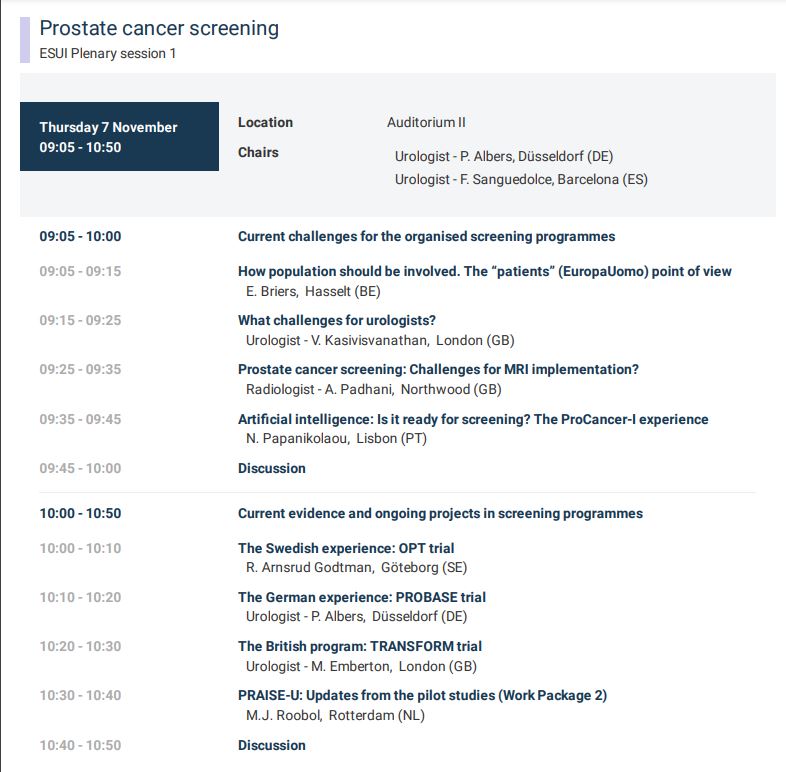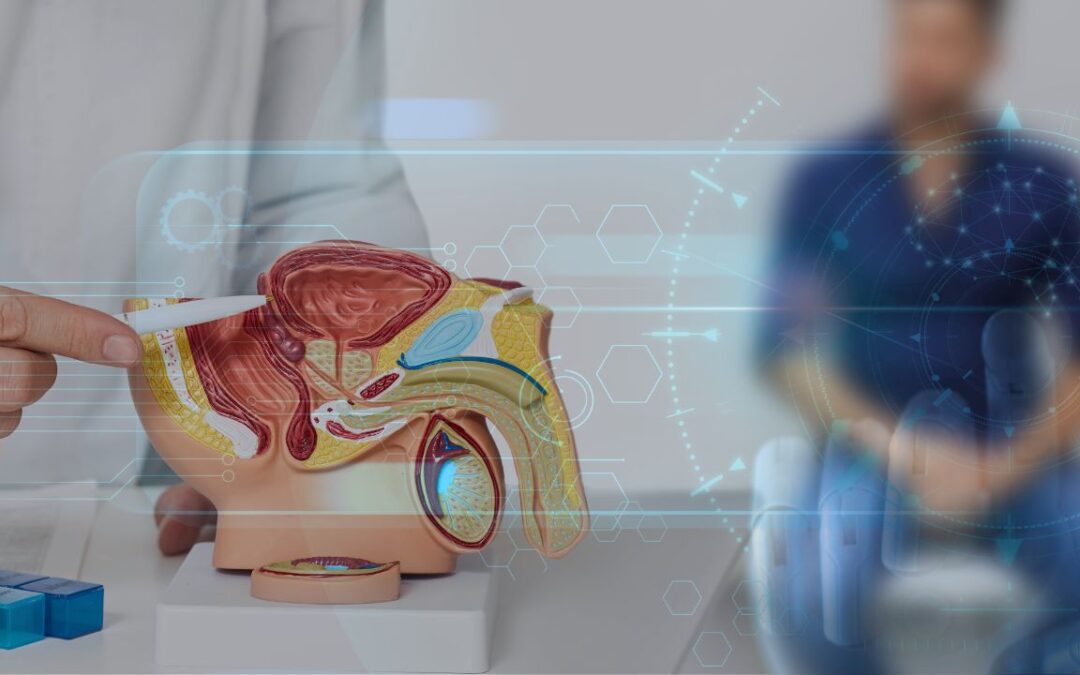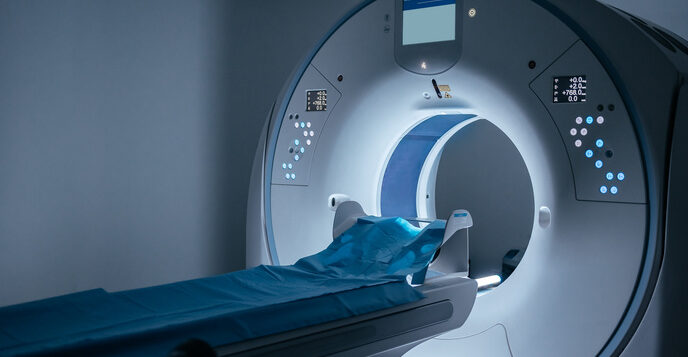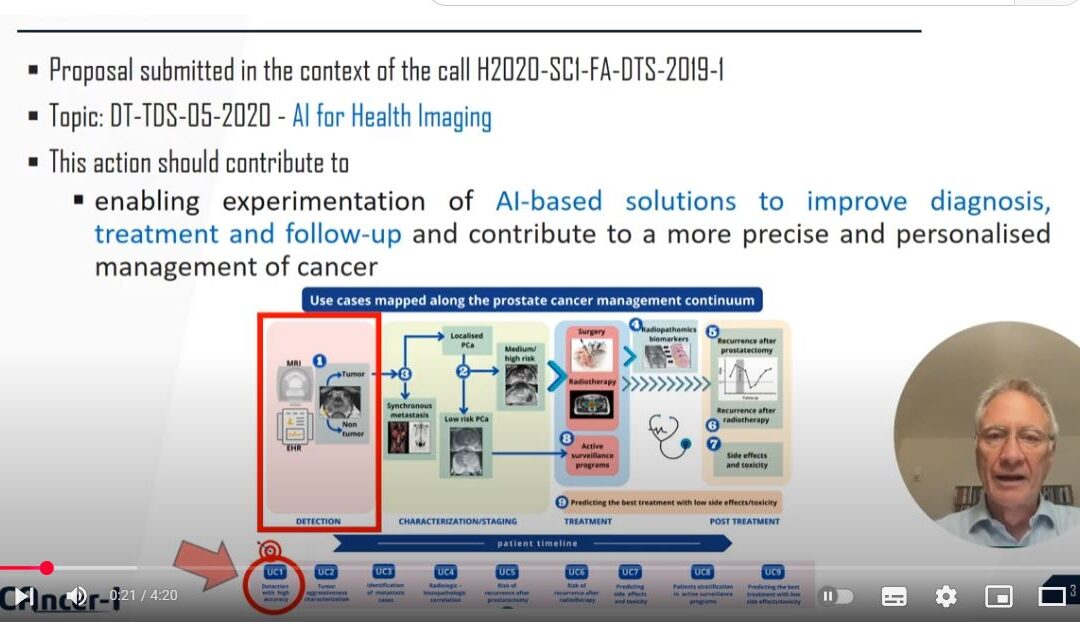The progress of major trials, the advent of artificial intelligence (AI), and interdisciplinary best practices were discussed at the 16th European Multidisciplinary Congress on Urological Cancers (EMUC24). The congress took place from the 7th to 10th of November 2024 in Lisbon. Being the only European multi-disciplinary gathering for urological cancers, EMUC24 delved into the very latest developments in the prevention, diagnosis and management of genito-urinary (GU) cancers.
Delegates received the AI-related developments from the EAU Imaging Section during the ESUI Plenary Session 1 “Artificial intelligence: Is it ready for screening? The ProCancer-I experience”, presented by Dr Papanikolaou, focusing on how AI is revolutionizing prostate cancer care. Dr Papanikolaou will also be sharing the groundbreaking experiences and findings from the flagship European-funded project—the European Federation for Cancer Images (EUCAIM).
During the first session by the EAU Section on Urological Imaging on Day 1 at EMUC24 in Lisbon, biomedical engineer Dr. Nikolaos Papanikolaou (PT) presented on “ProCAncer-I”, which as the organizers mention, is an artificial intelligence (AI) platform integrating imaging data and models, supporting precision care through prostate cancer’s continuum.
Dr. Papanikolaou: “The main objectives of ProCancer-I is to deliver a PCa AI platform featuring a unique collection of PCa mpMRI images worldwide, in terms of data quantity, quality and diversity. This platform should produce novel AI clinical tools based on a three-stage ensemble modelling process for advancing characterisation of PCa lesions, assessment of the metastatic potential, and early detection of disease recurrence. Ultimately, the goal of this project is to contribute in the increase of the trust in PCa AI tools by introducing AI model interpretability functionality. We have been collecting data over 4 years, resulting in one of the biggest imaging databases for PCa with 12,816 patients and total images of 8,425,386, called ProstateNET.”

According to Dr. Papanikolaou, MRI issues include diagnostic delay, overdiagnosis, high interobserver variability (large differences between expert and non-expert radiologists), long exam times, and lack of predictivity. To address these issues, he outlines areas of the population screening pathway where AI could be a useful tool in the future. “The expectation of AI is for it to be more accurate (further increase in sensitivity and specificity), reduce reporting times and reduce unnecessary biopsies.”
Dr. Papanikolaou addressed several challenges with AI in the screening versus diagnosis set up, but also potential solutions. “A fundamental requirement in AI and machine learning is that someone should always use a model with data that are similar to the training dataset, which makes out-of-the-box use of diagnostic models to the general population not feasible. Not only are the imaging characteristics between the screening and the diagnostic scenario different, but most importantly, the prevalence of clinically significant disease is much lower in the screening population, as expected.”
“The simple way to solve this problem would be to collect data from the normal population and train new models from scratch, but given the very low prevalence of significant diseases, that would take a long time. A more sophisticated approach is transfer learning, where knowledge from one domain is adapted and transferred to another domain. Someone could consider the diagnostic models as the backbone of new screening models where, with fine-tuning, they can adapt to screening data. The latter scenario would need only a small portion of the entire dataset to be collected, which is more feasible than training from scratch.”






